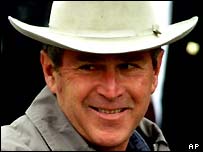Other simplifications flourish in the West, with its self-regarding belief in an untamed wilderness brought to heel by fiercely independent souls.
The truth has always been more ambiguous, not least because of the region’s tangled relationship with the federal government, which had cleared the land of Indians and offered the handout of the Homestead Act in 1862, itself adopted after some 70 years of debate about the rightful disposition of public lands.
In the 20th century, accounts of the West often centered on this paradox. The inhabitants boasted of their autonomy, even as the government did the dirty work, took the risks and offered sweet deals to settlers, so they could expand the borders of the United States. Without this help, as many writers have noted, the waves of Western pioneers wouldn’t have had the luxury of hating Washington bureaucrats.
This attitude, of wanting it both ways, was neatly summed up a half-century ago by the historian Bernard DeVoto as: “Get out and give us more money.” The novelist Wallace Stegner was just as unsparing when he observed, in 1986: “Westerners who would like to return to the old days of free grab, people of the kind described as having made America great by their initiative and energy in committing mass trespass on the minerals, grass, timber and water of the Public Domain, complain that no Western state is master in its own house.”
Below: A typical Westerner who was born on third base and thought he hit a triple.


No comments:
Post a Comment
Note: Only a member of this blog may post a comment.